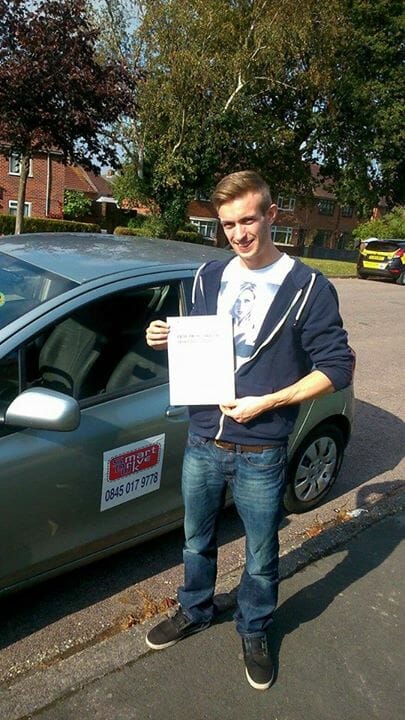It is both terrifying and anxiety-inducing for every driver to take a driving test, whether it is their very first or fourth attempt. If you fail, it only exacerbates these feelings. When learners make mistakes in a practical test, they become aware that they are at fault.
Sometimes, however, learners feel that the examiner misjudges their ability or treats them unfairly. In such situations, people often wonder whether they can appeal their driving test results.
The law prescribes how driving tests must be conducted, and if your driving examiner violated the law, you can appeal.
You can’t have your test results changed by the court. You may, however, be granted a free test retake or be given a refund if you win your appeal.
When you have proof that your test was not conducted legally, you can make a complaint directly to the Driver and Vehicle Standards Agency (DVSA).
Next, we’ll look at the steps leading up to, and following, the failure of your practical driving test, your appeal process, and your options.
Failure to pass the driving test
For people taking their practical tests, it is possible to fail. Whatever you do, there is always going to be a stumbling block.
Getting nervous can sometimes get in our way when taking practice tests. Sometimes it’s just a matter of a few little errors that add up over time. It’s okay to ask for help in your struggles.
Identifying your mistakes
You are allowed to commit up to 15 minor driving errors during your practical test, but none that are hazardous or any serious fault.
A few examples of faults are:
- The act of moving off – failing to complete proper checks before leaving is likely a minor fault or can be a major fault if you leave in an unsafe location.
- Stopping quickly in an emergency – you have to demonstrate absolute control. Many students mistakenly apply the clutch then footbrake after. Are you quick to respond? If you are unable to complete the manoeuvre promptly and under control, then you will commit a fault.
- Engine starting – If you leave the car in gear, do not press the clutch or do not apply your handbrake, you’ll encounter several issues.
- Affective use of mirrors when changing speed or direction.
- Maintaining the correct position throughout your driving or manoeuvres.
- Good observation throughout your drive including parking & reversing.
Afterwards, the examiner will let you know what went well and want went wrong. Upon receiving the test report via email, you will be able to use this to make further improvements to your driving. Before you retake your practical, you can identify your developement areas and work on improving them. Your driving instructor can give you further feedback if they observed you on test or listened to the examiners feedback.
To prevent making the same mistakes in the future, consider reviewing the road or route where you had difficulty during your test. In most cases, the examiner’s decision is agreed upon by the driving student.
Though it may not be easy to accept, it is important to acknowledge our faults and shortcomings.
Grounds to appeal
Getting legal advice can help you determine if you have a valid appeal. In case your driving examiner violated the law, an appeal is possible. Speak to your driving instructor who may be able to guide you accordingly.
It is not possible to appeal if the test has been terminated earlier for the following reasons:
- It was a mistake that led to you failing your driving test
- You drove dangerously
Why you shouldn’t appeal
The following reasons will not lead to a successful appeal:
- The test result you received isn’t what you expected
- Driving examiner’s judgment is not acceptable to you
- Dangerous faults were marked by the examiner unfairly
- This driving examiner was not to your liking
- While you were taking the test, you felt ill
- The test was cancelled due to a breakdown in your car
- There was something wrong done by another motorist, and you didn’t react correctly to it
You can complain about your driving examiner if you believe they were disrespectful. DVSA cannot modify your test results.
The appeal
Examination providers do not want to fail candidates unless it’s necessary, so it’s difficult to challenge a driving test result. It may be possible to appeal the result if you feel your test was not conducted following the guidelines.
DVSA can be contacted by email, phone, or mail if you have concerns about your practical driving test report. In general, you’ll be notified within ten business days. In case you’re eligible, you can request a free re-test.
It will be necessary for you to appeal to
- If your test was taken in England or Wales, you must appear before a magistrate within six months.
- If your test was taken in Scotland, you must appear in sheriff’s court within 21 days.
What follows
If you are appealing your driving test, make sure you do so under section 90 of the Road Traffic Act 1988. To appeal an ADI driving test result, refer to section 133 of The Road Traffic Act 1988.
In your appeal, it will help if you state what legal provisions were not followed by the driving examiner as well as what violations occurred.
You will receive a letter from the court indicating when the hearing will take place. In the letter, you will find instructions for the hearing. The appeal will usually be heard in court by a magistrate. The hearing can be represented by a solicitor, though they usually charge a fee.
There’s a chance you’ll be asked about how you feel the driving examiner violated the law while testing and to provide evidence. During your cross-examination, you will need to answer several questions about your driving test.
The DVSA will usually be represented by a lawyer in court. Sometimes the test driver will testify and answer questions during the hearing. Your case must show that the driving examiner violated the law more likely than not.
A court will most likely dismiss your case if you fail to appear at the hearing.
How will things turn out?
It is unlikely that an appeal will overturn a driver’s test decision.
No matter if the DVSA observes that your examiner repeatedly fails students or if they receive numerous complaints about their work, they cannot determine your driving ability. In your case, the examiner might have been right. However, they can investigate a learner’s complaints against an examiner to determine whether they are credible.
If you win your appeal, your practical test result can’t be changed, but you will receive a free retest, saving you £62!
The outcome of your appeal is normally announced after the hearing. In the event you win your case, the court will not be able to change your test results.
In addition, if your appeal is denied, you will need to schedule and pay for another driving test. If you lose your appeal, you will also be required to incur costs.
Drive again
A failed driving test can be catastrophic, but it does not mean that you are doomed to never drive again.
A seemingly insignificant detail is sometimes all it takes to knock you off your feet. It might be a good idea to try a refresher course, like taking another 10-hour course, for people who are close to passing the test but want more driving lessons to make sure they pass.
You are more likely to forget what you learned in practice after too much time has passed.



